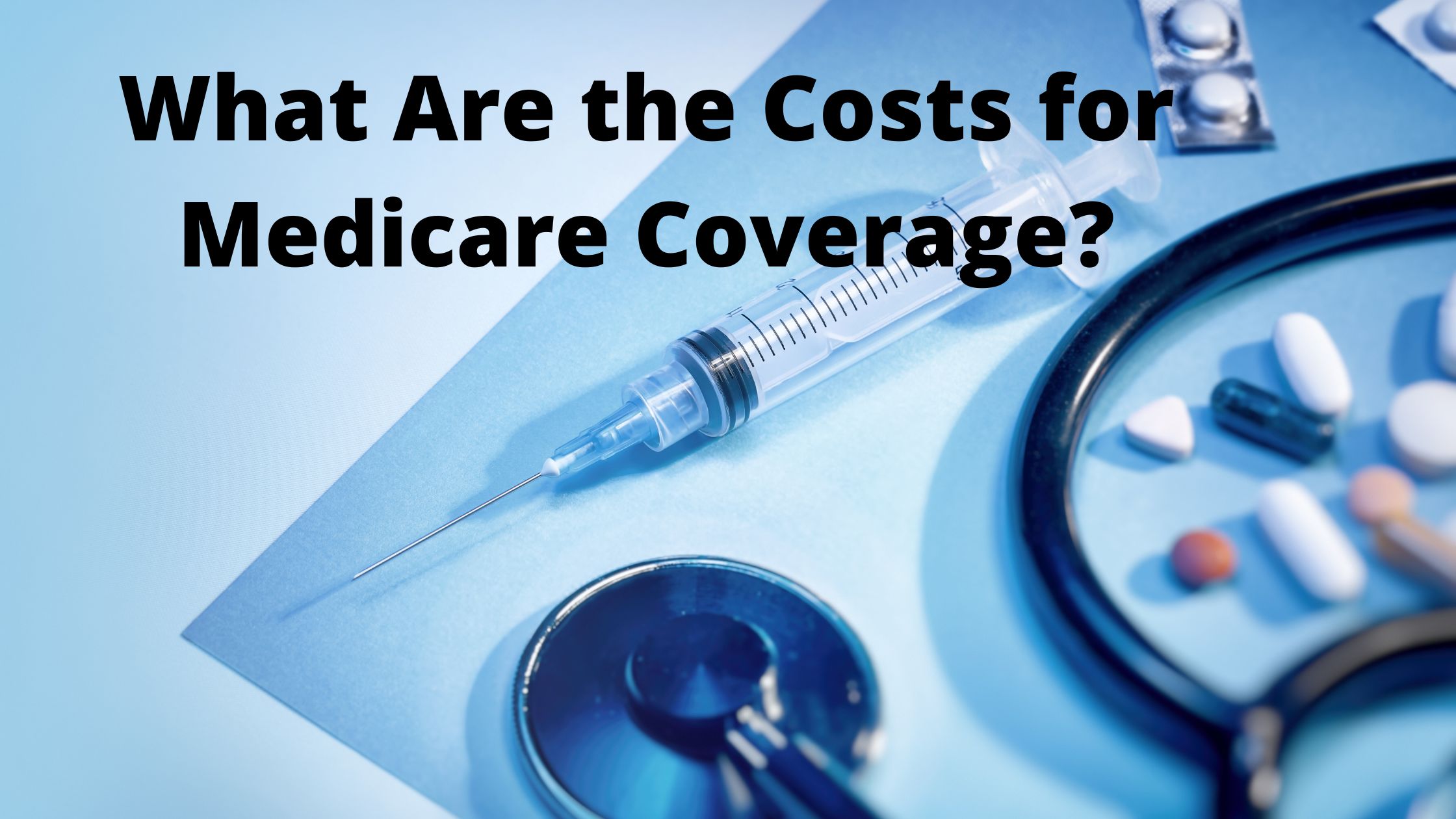Medicare is a government healthcare program for seniors and people with disabilities. It’s one of the most important social programs in the United States, providing health coverage for more than 55 million people. As you may know, Medicare has two Parts: Part A covers hospital care and Part B covers prescription drugs and other medical services.
In this article, we’ll explore some of the benefits of Medicare and discuss what you need to know about its costs. We’ll also provide tips on how to save money on your Medicare benefits. Finally, we’ll give you a brief overview of popular Medicare supplement plans so that you can find one that’s right for you.
What is Medicare?
If you are over 65 years old, then you are probably familiar with Medicare. Medicare is a government-run health insurance program that offers benefits to Americans aged 65 or older and to people with certain disabilities.
Medicare covers a variety of medical expenses, including hospital stays, doctor visits, and prescription drugs. You may also be eligible for Medicare supplemental insurance, which provides coverage for expenses that aren’t covered by Medicare.
The cost of Medicare depends on your income and the coverage you choose. The average monthly cost of a standard plan in 2019 is $119.90 per person. However, the cost of Medicare can vary depending on your location and health condition.
If you’re interested in exploring your eligibility for Medicare, visit the website for the Centers for Medicare and Medicaid Services (CMS). You can also contact your state Social Security office to learn more about the program.
The Different Types of Medicare Plans
If you are age 65 or over, or have a disability, you may be eligible for Medicare. Medicare is a government-run health insurance program that provides health care coverage for people age 65 and over, and people with disabilities. There are three types of Medicare plans: Part A, Part B, and Part D.
Part A covers inpatient hospital services and some medical procedures.
Part B covers doctor visits, outpatient hospital services, prescription drugs, and some medical procedures.
Part D covers the cost of prescription drugs. If you have both Parts A and B, Part D will cover the entire cost of your prescriptions.
There are several different Medicare plans available. The plan that is right for you depends on your income, your health history, and whether you have any other coverage. You can find out more about each plan by visiting the Medicare website or by calling 1-800-MEDICARE (1-800-633-4227).
What are the Hospital Insurance Coverage Limits?
The Hospital Insurance Coverage Limits are the maximum amount of money that you are allowed to pay for hospital insurance in a calendar year. These limits vary depending on your income level, family size, and the location of your residence. The limits are as follows:
-For individuals with an annual household income below $24,600: $1,272.50
-For individuals with an annual household income between $25,000 and $34,000: $2,052.50
-For individuals with an annual household income of $35,000 or more: $3,152.50
You can find out if you meet these coverage limits by visiting healthcare.gov or calling 1-800-MEDICARE (1-800-633-4227).
Medicare Advantage Plans: What You Need to Know
Medicare Advantage plans, also known as Part C, offer supplemental insurance to Medicare beneficiaries. These plans can provide a variety of benefits and services, such as mental health and substance abuse treatment, doctor visits, prescription drugs, and home health care.
To get the most out of your Medicare Advantage plan, it’s important to understand the costs involved. Here are five things you need to know about Medicare Advantage costs:
1. The premiums for Medicare Advantage plans vary significantly based on the coverage options chosen. The most popular plans typically have lower premiums than traditional Medicare but offer more benefits.
2. The costs of services provided by Medicare Advantage plans are usually not covered by Medicare. Most plans include a selection of provider networks, which means that you will have to pay for services out-of-pocket if you choose not to use the plan’s provider network.
3. You may be able to save money by choosing a plan with low premiums but high deductibles or copays. Plan features that can save money include a no-deductible option and premium discounts for members who use certain types of medical services (such as specialists).
4. If you
What Are the Costs for Medicare Coverage?
Medicare is a government-run health insurance program for people aged 65 and over, and for people with certain disabilities. Medicare provides coverage for doctors’ visits, hospitals, outpatient care, prescription drugs, and other services. The cost of Medicare varies depending on your income and the type of coverage you select.
The table below shows the average annual costs for different types of Medicare coverage in 2017. The table includes both the premium (the amount you pay each year) and the deductible (the amount you must pay before insurance starts to cover costs).
Coverage Type Premium Deductible Initial Out-of-Pocket Maximum
Full Coverage $US 138 $US 3,700 $US $US 16,000
Part A $US 261 $US 7,300 $US $US 14,000
Part B $US 139 $US 4,500 $US $US 12,000
Medigap Plans: \* Bronze Plan – No premium\* Silver Plan – The premium is equal to 9% of your monthly Social Security benefits\* Gold Plan – The premium is equal to 12% of your monthly Social Security benefits
Medicare Prescription Drug Coverage: What You Need to Know
Medicare prescription drug coverage is one of the benefits Medicare offers its beneficiaries. As a Medicare beneficiary, you are eligible for coverage of prescription drugs that are prescribed by a doctor. You also may be eligible for free or reduced-cost medication through the Part D program.
If you are enrolled in Medicare, you should know about the costs of prescription drugs. The following information will help you understand how Medicare works with prescription drug coverage and what expenses you may be responsible for.
What Are the Costs of Prescription Drugs?
The cost of prescription drugs can vary depending on the type of drug and your location. However, generally, the cost of a drug will be based on its brand name, generic name, and therapeutic class. Therapeutic classes include anti-inflammatory agents, analgesics (painkillers), and cholesterol-lowering medications.
How Does Medicare Work With Prescription Drug Coverage?
The most important thing to know about Medicare prescription drug coverage is that it is an insurance program. This means that premiums and other costs are paid by the government instead of by you or your employer.
In general, Medicare pays 100 percent of the cost of covered drugs
Medicare Health Savings Accounts (HSAs): What You Need to Know
If you’re like most people, you’re probably familiar with Medicare, but you may not be aware of all its benefits. Here’s a rundown of what Medicare is, what it covers and some of its key features.
What is Medicare?
Medicare is a government-run health insurance program for people age 65 or older and those with disabilities. It’s the largest single source of health insurance in the United States.
What does Medicare cover?
Medicare provides comprehensive coverage, including hospitalization, doctor visits, prescription drugs and other medical services. You don’t have to pay deductibles or co-pays, and you don’t have to worry about out-of-pocket expenses.
How much does Medicare cost?
The cost of Medicare varies depending on your income and the type of coverage you select. The least expensive coverage available to most people costs $109 per month. However, if you have Part A (hospital) coverage, the monthly premium ranges from $161 to $218 per month. If you have Part B (medical) coverage, the monthly premium ranges from $228 to $425 per month.
How Do I Make the Most of My Medicare Benefits?
The Medicare program is one of the most important benefits you can receive, and it offers a number of important benefits to seniors and people with disabilities. Here are some tips on how to make the most of your Medicare benefits:
1. Know your eligibility. If you are 65 or older, have a disability, or are terminally ill, you are automatically eligible for Medicare. If you are not automatically eligible, you may be able to qualify if you have spent at least 10 years in good standing with your employer based on credited wages. You may also be eligible if you have served in the military or worked as a police officer or firefighter for at least two years.
2. Explore your options. There are a number of ways to get more out of your Medicare benefits. Some options include using free clinics and hospitals, signing up for prescription drug plans, and getting health insurance through the government or private companies.
3. Try new services. Many Medicare beneficiaries find that they can save money by trying new services that they would never have considered before, like acupuncture or yoga therapy.
4. Use your insurance benefits wisely. Many seniors use their insurance benefits to cover expenses that they would not be able to pay for out
Conclusion
As you start thinking about retirement, it’s important to be aware of the various benefits available through Medicare. In this article, we’ll cover some key points about Medicare and discuss how much it costs to receive those benefits. We’ll also provide a few tips on how you can save money on your Medicare health care expenses. So whether you are just starting to plan for your future or have been planning for a while, make sure to read this article and take note of the valuable information it contains.

